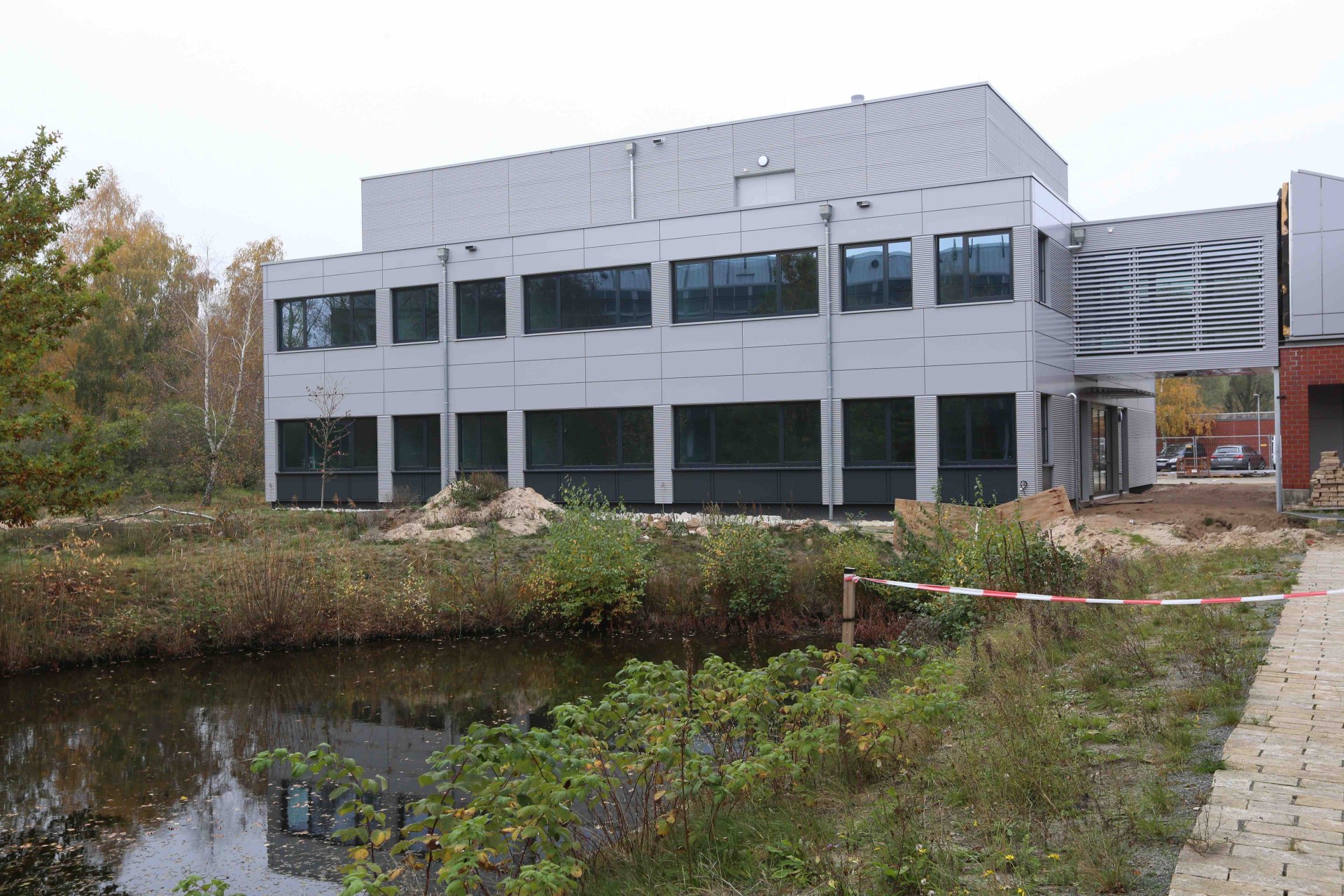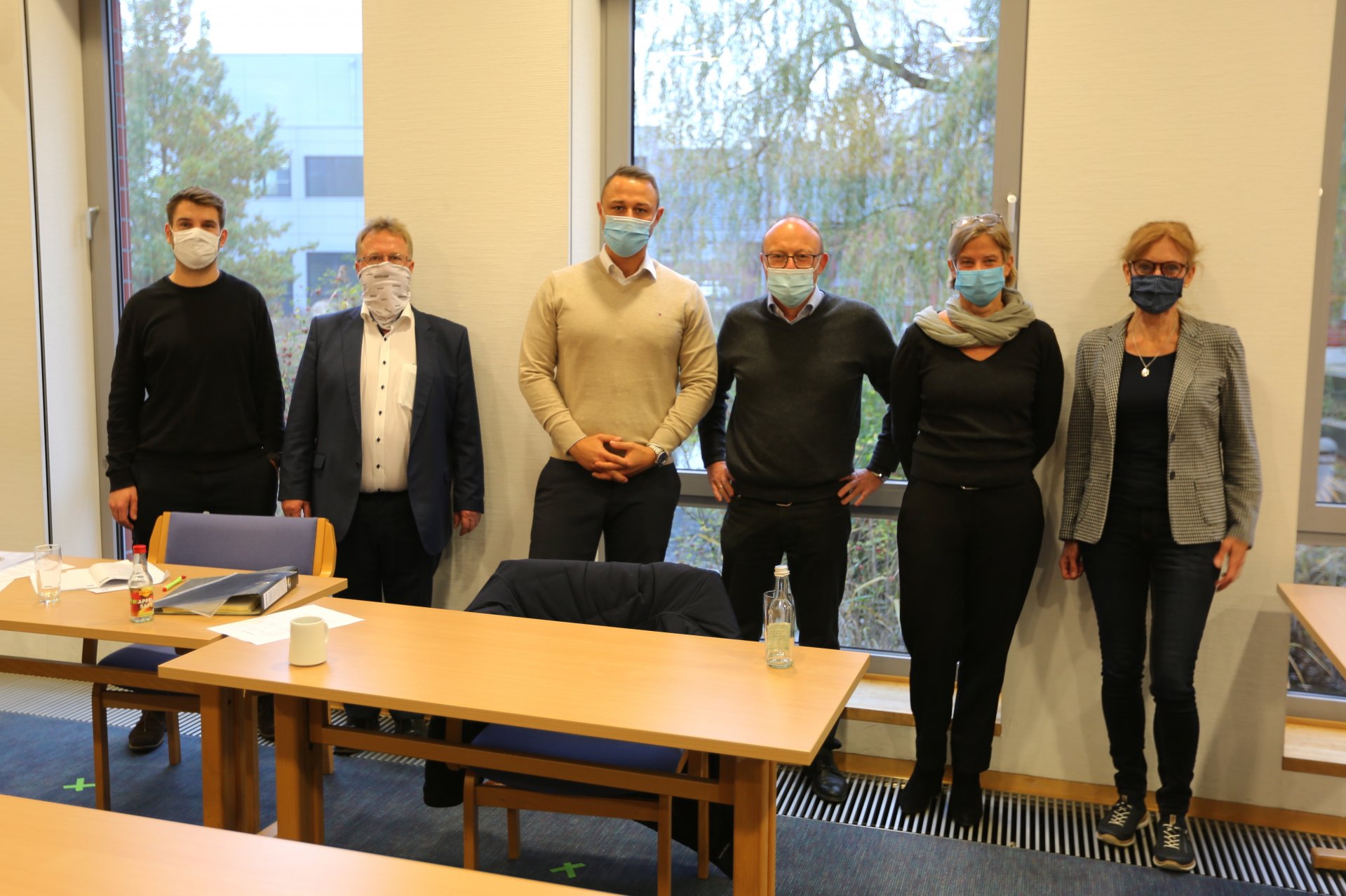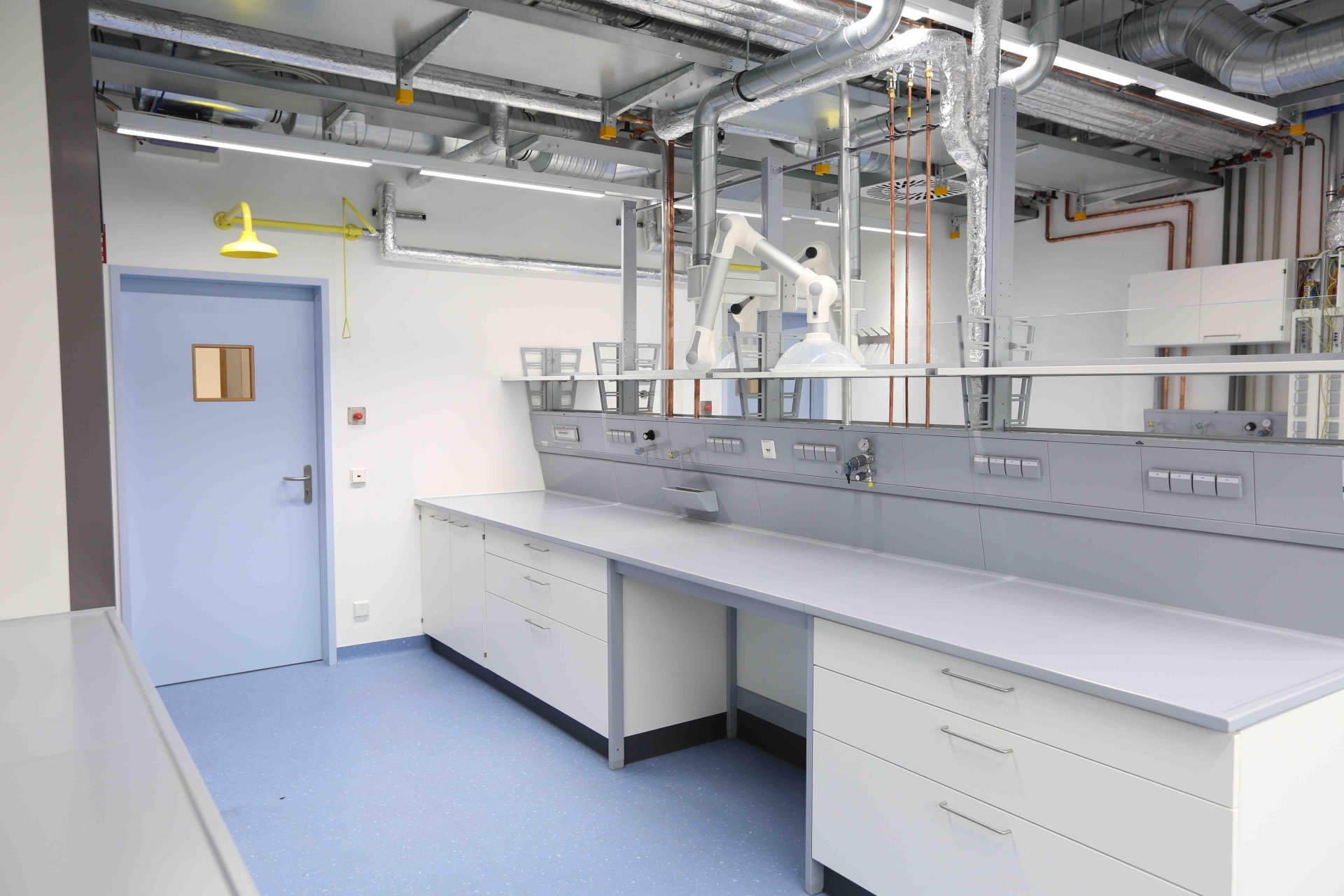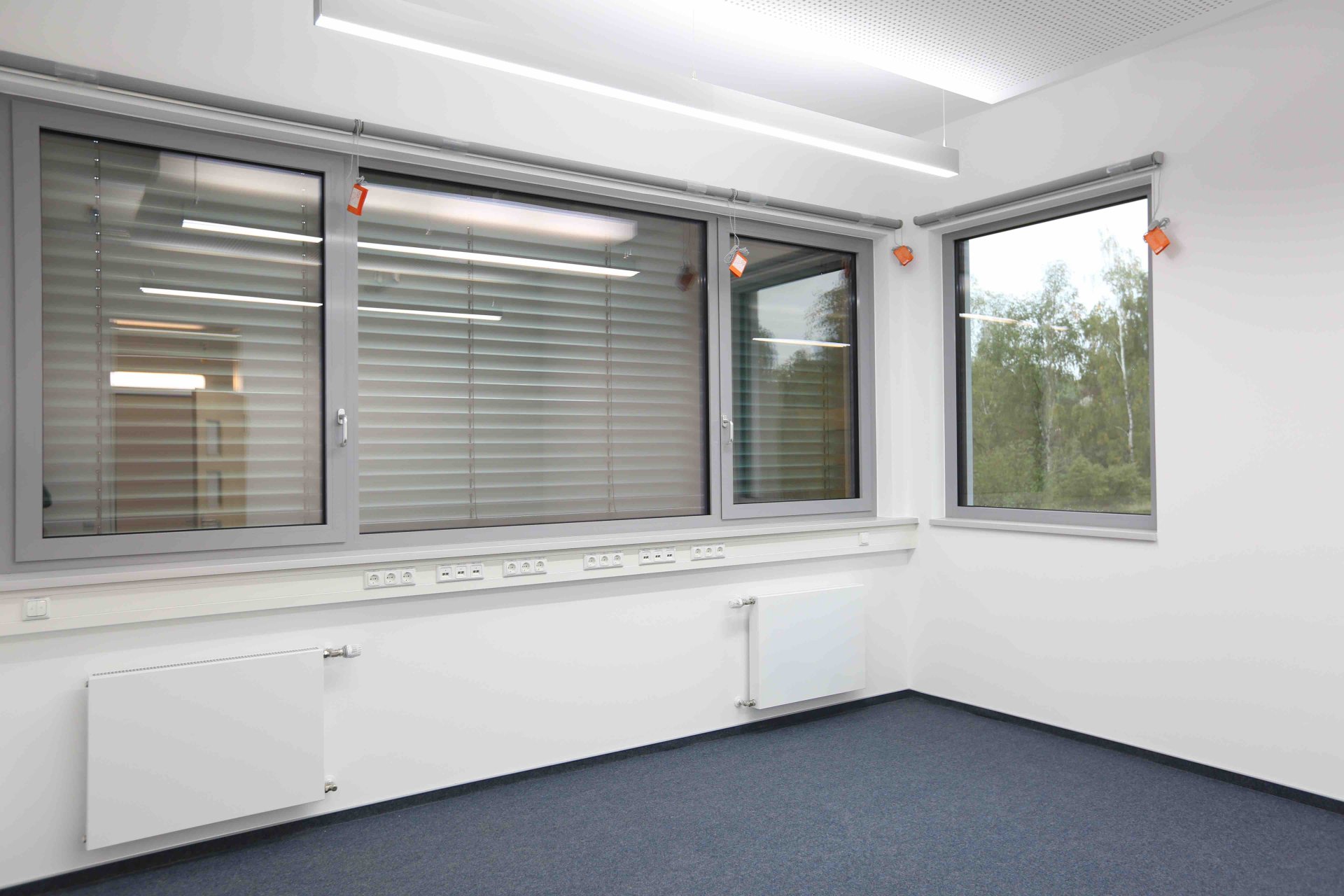- Press Office
- Press releases 2020
- New building is ready
New building is ready – more space for marine microbiology
Construction has probably never been so fast in the Bremen Technology Park. “It was fascinating to see how a fully-fledged new research building was constructed in modular design within a few months. Despite Corona, the structural engineering work, which only began in June, was completed with minimal disruption to our work”, says Institute Director Rudolf Amann. “We are looking forward to take the building into operation this year and would like to thank Cadolto, the planning offices and our construction department”.
The new building is a modern modular construction by the company Cadolto from Cadolzburg, nearby Nuremberg. The specialists for modular construction prefabricated a total of 29 modules in their factory in Bavaria and then transported them to Bremen for assembling them here within only one week. The transport of the huge modules was a real eye-catcher! Afterwards, Cadolto carried out the interior fittings, including laboratory equipment. Planned by the architecture firm Joesten and under the auspices of the Max Planck Society, about 660 square meters of new offices, laboratories and community rooms will soon be at our disposal to expand and advance the research of the Max Planck Institute in Bremen. The new part of the building will first provide some extra space during the corona restrictions before it will be home to three or four working groups and a parent-child room.
The Max Planck Institute for Marine Microbiology in Bremen was founded in 1992, the handful of employees at that time did not even have their own building. Almost 30 years have passed since then and since the institute building was constructed in 1996, the institute has grown steadily. The new building now enables a further expansion of our research.
Things can happen very fast: The assembling of the modules in time lapse
The time-lapse film shows the period from June 9 to 16, 2020. During this week, the modules were delivered at night and stacked until dawn. During the day, smaller jobs were done.



